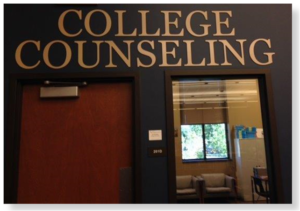 Caleb was about to start college. He had crawled his way over the academic finish line of high school despite having a high IQ, engaged parents and all the benefits of a wealthy New York family. Money and potential just weren’t enough to fix his mounting depression and anxiety which chiseled-away his motivation and focus for school.
Caleb was about to start college. He had crawled his way over the academic finish line of high school despite having a high IQ, engaged parents and all the benefits of a wealthy New York family. Money and potential just weren’t enough to fix his mounting depression and anxiety which chiseled-away his motivation and focus for school.
Thankfully, his parents contacted me the June before he was to start as a Freshman. We setup intake, scheduled sessions and developed a plan for how best to support him.
Caleb’s parents, while super proactive, were unfortunately, very unique. Most parents don’t think about how important it is to have a plan and line up professionals BEFORE their rising freshman steps foot onto campus. Below are my best suggestions for establishing this plan and building a support team.
Make Contact with CAPS
CAPS stand for Counseling and Psychological Services which is a generic name for the counseling center on most college campuses. Not all college counseling centers are called CAPS but regardless of what they’re called, I recommend making contact BEFORE the first day of classes. If you know your son or daughter will need counseling services (or medication management or group counseling) or suspect they will need services, contact their counseling center and ask the following:
– How does my son/daughter start working with someone there for individual counseling (or psychiatry or whatever)?
– Will my son/daughter be able to meet with the same person each week?
– How many sessions are included in tuition/student expenses, when do we have to start paying out of pocket and do you accept insurance for sessions?
– What type of evaluation process is available if we aren’t sure what is going with our son/daughter and what types of intervention/service would best serve them?
 Sign Releases of Info
Sign Releases of Info
You’d think your college student is working for the NSA or something if you’ve ever tried to get information from their university. While I understand their legal obligation to protect students’ academic and healthcare records, I wish they would communicate early and often to parents about what can be shared and what forms or procedures necessary to access protected information.
Even when I’ve had a college kid request their information be released to parents or providers, many colleges seem uncomfortable with releasing anything (here’s an example from Indiana University’s privacy site). This is especially frustrating when a college student truly needs a ‘team-based’ approach to something like depression but the university CAPS, student services and even frat or dorm rep will not communicate or coordinate with anyone outside of the campus bubble.
The best a parent can do is ask for and have their college student complete a release of information. It’s also ok to have your college student add a note to the release that explicitly states what records and information should be released and when. Make a copy of it (or just take a pic with your phone). Do not send a kid to school who is struggling with depression, anxiety, motivation, substance use or eating disorders without having a release signed.
At Indiana University, parents and providers can setup what’s called ‘3rd Party Access‘ for the online academic information (IU uses Canvas). This provides parents and providers access to important but limited academic information. Most universities are now using something like Canvas (another popular platform is Blackboard).
Medications
If your college kiddo takes any kind of prescription medication, especially an antidepressant, anti-anxiety or something for ADHD, make sure to find a local doctor or psychiatrist that will take on the responsibility of writing prescriptions. In some instances, doctors/psychiatrists at home will agree to schedule their regular check-in sessions during college breaks so that you don’t need to switch providers. Do this planning now. I have had dozens of clients who ran out of meds, couldn’t get in to see a local doctor and couldn’t get an appointment and fly back home quickly enough. This lapse in regular medication can result in major problems.
 Research On- (and Off-) Campus Resources
Research On- (and Off-) Campus Resources
Some universities are great at coordinating with providers in the area while others are…well, lacking. Indiana University is an example of a university that does not actively cultivate or maintain relationships with providers in Bloomington (our nice little college town here) which functionally means there is a big gap in what students experience and what they have available to them if CAPS doesn’t satisfy their needs. University of North Carolina Chapel Hill is an example of fantastic coordination with local providers. They have a very active and updated list of providers in the community which they share with students and their families. They make the referral process into and out of the UNC healthcare system relatively easy.
Build a Plan B for Big and Small Things
Regardless of how great the semester looks from your vantage point in August, I recommend having a Plan B. Basically, who does what when things start going wrong. An example is something really simple like texting. What’s the longest period of time can you or your kiddo expect to go without checking in, calling or texting? If, let’s say, two days go by and you haven’t heard from them, what’s the plan for contact? It doesn’t necessarily mean there’s an emergency but having a bit of a plan (or reasonable expectation) for contact and what happens if you don’t hear from them can avoid 75% of issues that pop up.
Another good place for planning (but often overlooked) is checking in on grades. Grades are the canary in the coal mine – if the bird dies deep in the mine, the air is probably not super great for the miners. If you don’t create a plan for checking grades regularly, it may be Thanksgiving or Holiday Break before you realize just how bad grades are and, in turn, how bad their depression/anxiety/drug use/etc has become over the semester.
The solution? Plan for weekly check-ins including grades every week until the end of September. In October, drop it back to every other week. And then, if everything has been solid, have a check-in once in November (before Thanksgiving break) and then once in December BEFORE finals.
With a bit of August planning, you can help set your college Freshman up for success which is the foundation for the next four (or five) years of college.
